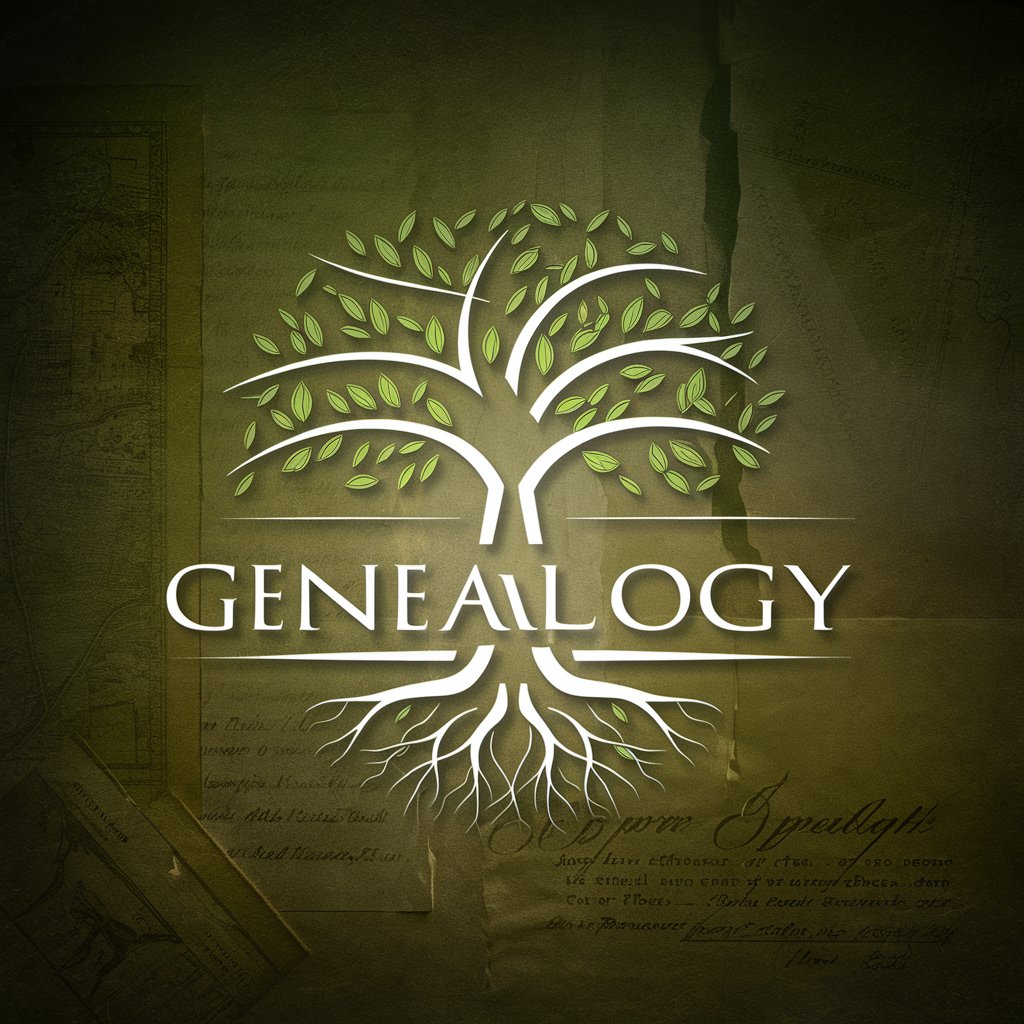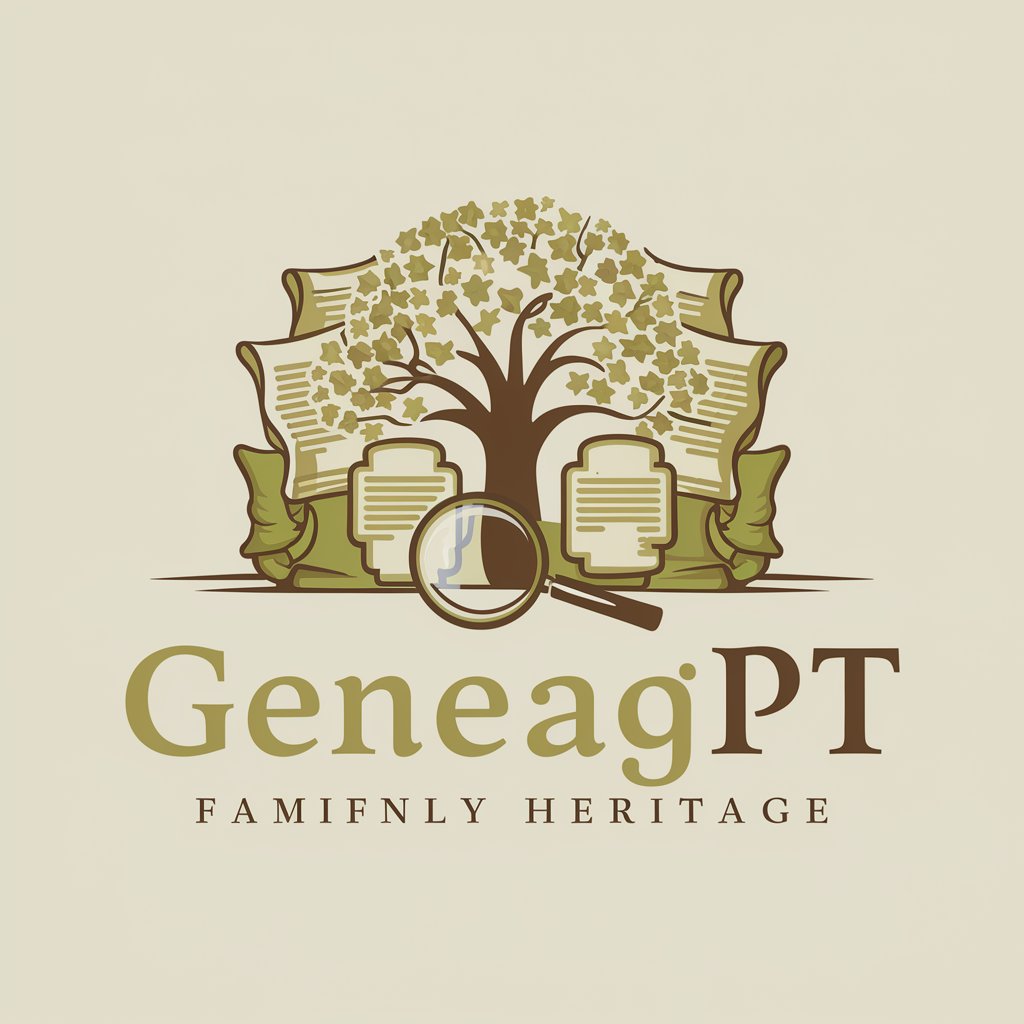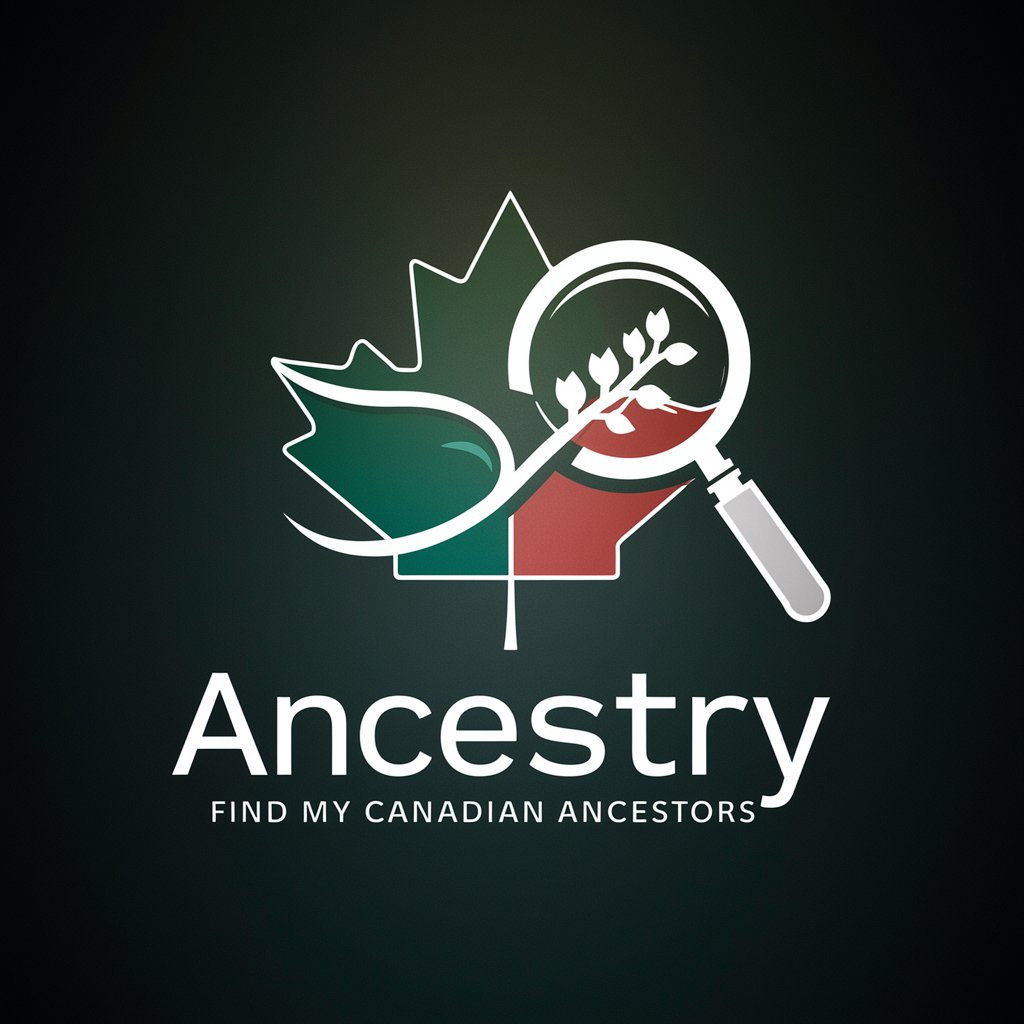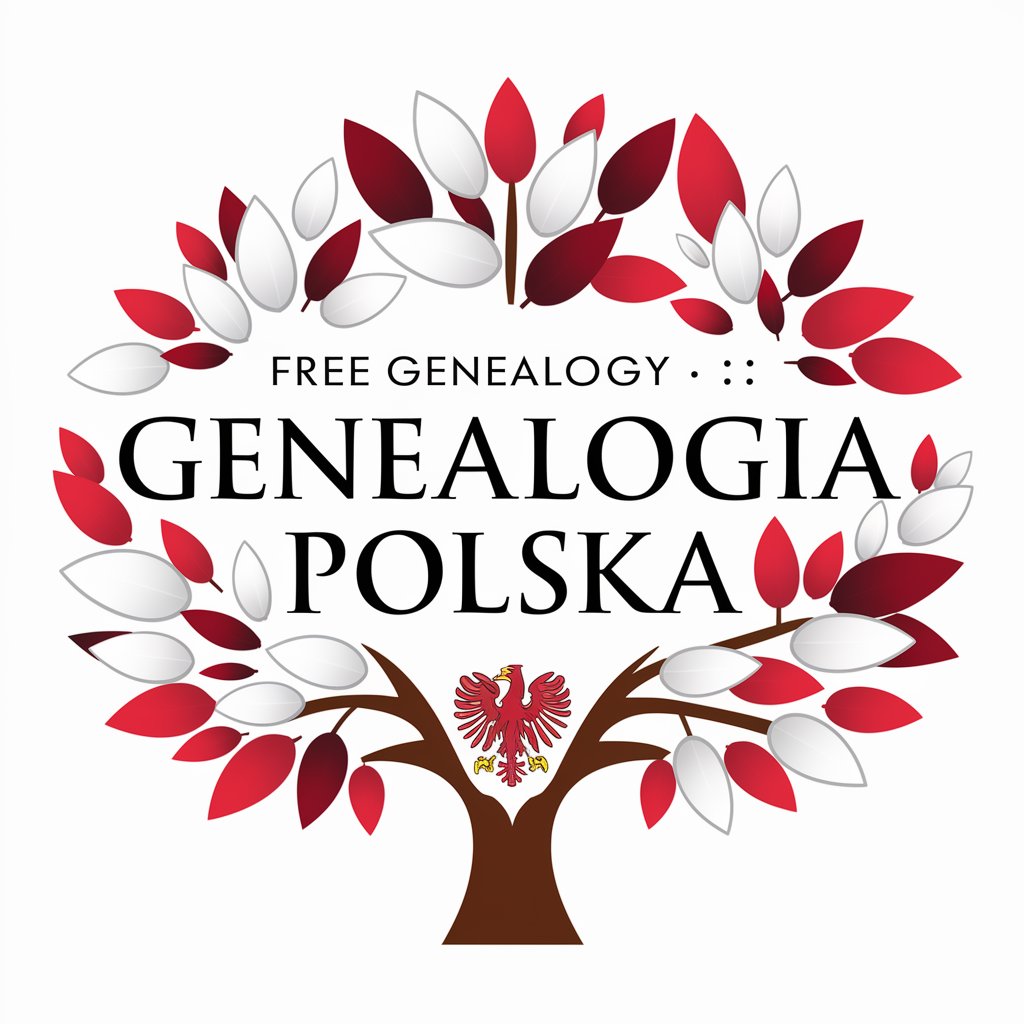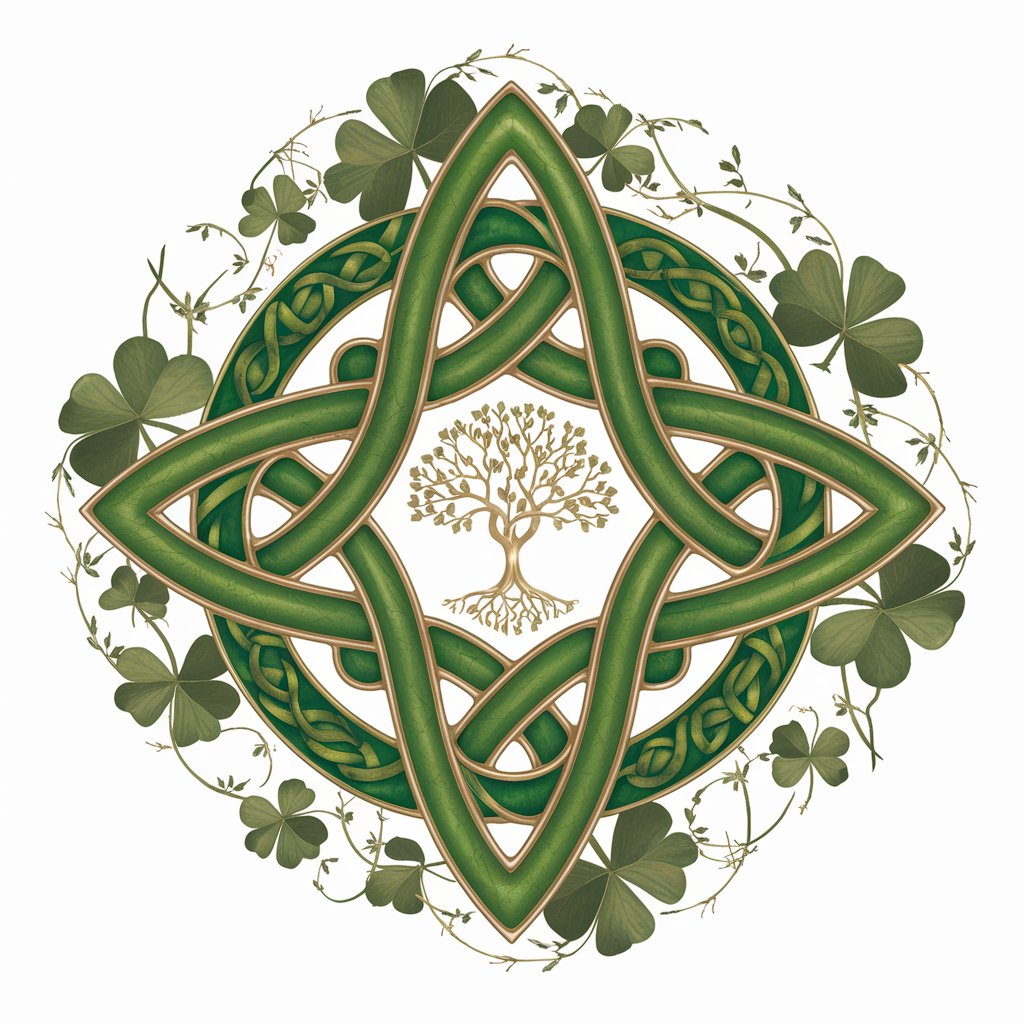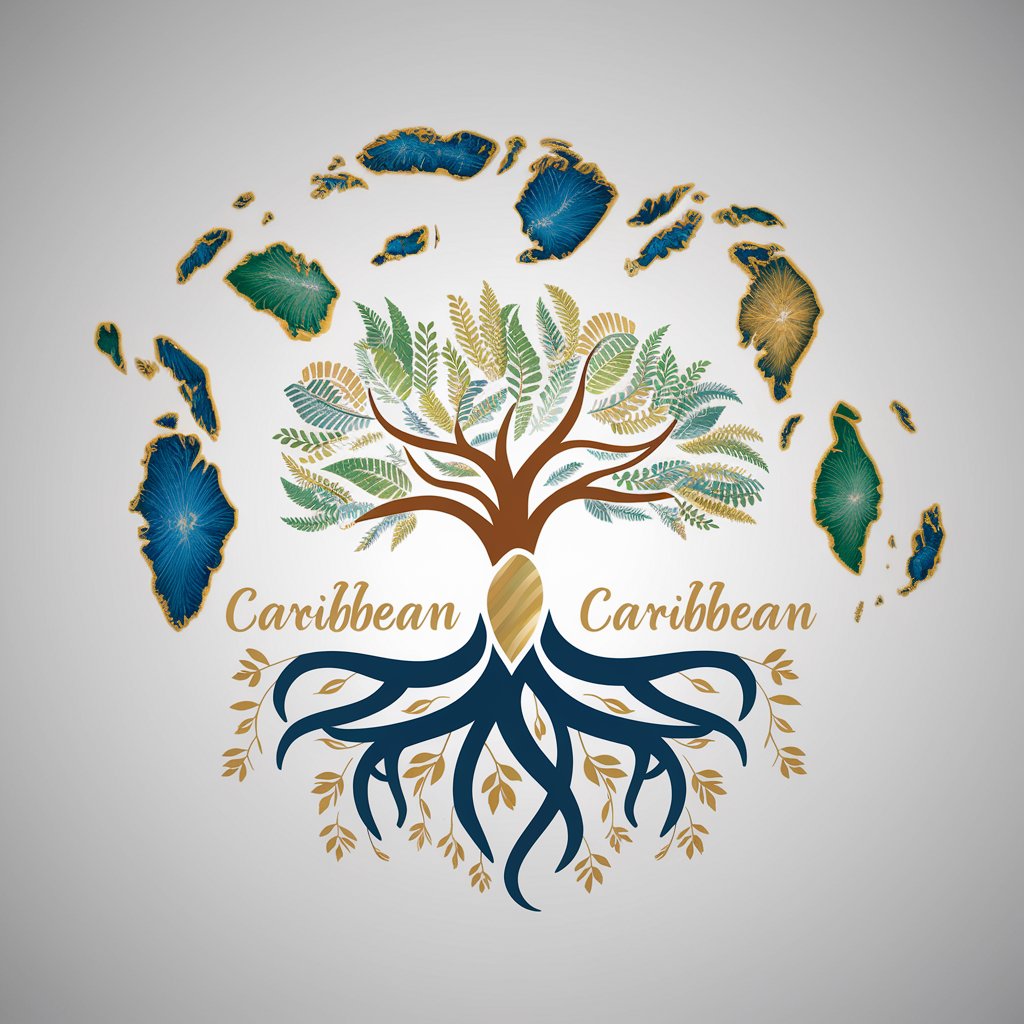
Newfoundland Genealogy - Newfoundland Genealogy Assistant
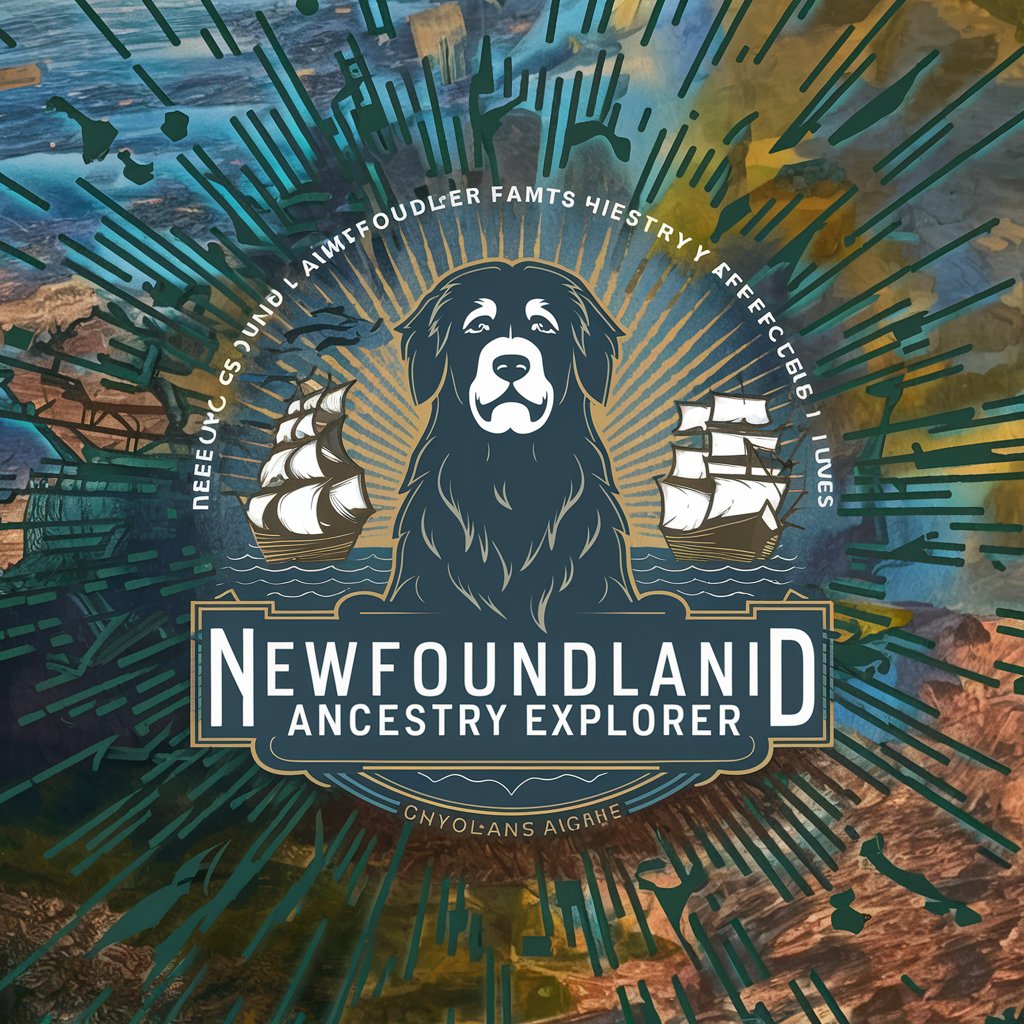
Welcome to the Newfoundland Ancestry Explorer! Let's uncover your heritage together.
Uncover Your Roots with AI
Explore your Newfoundland roots by discovering...
Dive into the rich history of Newfoundland with...
Trace your family lineage with the Newfoundland Ancestry Explorer, starting with...
Uncover the stories of your Newfoundland ancestors by using...
Get Embed Code
Overview of Newfoundland Genealogy
Newfoundland Genealogy is designed specifically for exploring and assisting with genealogical research related to Newfoundland and Labrador. This service taps into specialized databases such as the MUN's Digital Archive Initiative and collections.mun.ca, and integrates resources like ngb.chebucto.org to provide a comprehensive toolset for genealogy enthusiasts. It supports interpreting data from GEDCOM files, constructing genealogical charts, and searching historical records. The dialect understanding feature aids in deciphering local language nuances in historical documents. For instance, it could help a user understand colloquial terms found in old letters or records, providing clarity on familial relationships or historical events described in dialect. Powered by ChatGPT-4o。

Core Functions of Newfoundland Genealogy
Genealogical Research
Example
Searching for baptismal records from the 1800s within specific parishes in Newfoundland.
Scenario
A user might be trying to trace their great-great-grandparents' origins and uses Newfoundland Genealogy to access digitized church records from St. John's in the 19th century, analyze them, and add the findings to their family tree.
Interpreting GEDCOM Files
Example
Uploading and decoding a GEDCOM file containing a user's family history data.
Scenario
A genealogy enthusiast has received a GEDCOM file from a distant relative. They use Newfoundland Genealogy to upload and decipher the file, integrating the new information into an existing family tree while confirming and correcting historical data through additional archival research supported by the tool.
Historical Contextualization
Example
Providing background on name changes in communities and how these affect genealogical searches.
Scenario
When a user encounters a reference to a community known as 'Hant's Harbour' which is now known as Hant’s Cove, Newfoundland Genealogy offers strategies for discovering potential historical name changes, thus aiding in locating further records under the old community name.
Target User Groups for Newfoundland Genealogy
Genealogy Enthusiasts
Individuals with a keen interest in tracing their family roots in Newfoundland and Labrador, looking to explore extensive historical records and utilize tools like genealogical charts and GEDCOM file interpretation.
Academic Researchers
Scholars and historians focusing on the social and demographic history of Newfoundland, requiring detailed and accurate historical data, including the interpretation of dialects and local naming conventions.
Local Historians and Storytellers
Local experts and oral historians who delve into the community history of Newfoundland and Labrador, aiming to preserve and share stories and historical facts accurately, often dealing with language nuances and archival material.

How to Use Newfoundland Genealogy
Initiate Access
Visit yeschat.ai to start using Newfoundland Genealogy without any login required, nor the need to subscribe to ChatGPT Plus.
Explore Tools
Access the digital archives available, such as MUN's Digital Archive Initiative, to begin your genealogical research.
Search Records
Utilize the search function to look up specific family names, places, or events within Newfoundland's historical records.
Analyze Data
Review and analyze the gathered data to understand family linkages, historical contexts, and migration patterns.
Document Findings
Organize and document your findings using the tool's features to create genealogical charts or detailed family histories.
Try other advanced and practical GPTs
Genealogy Research Assistant
Uncover Your Past with AI
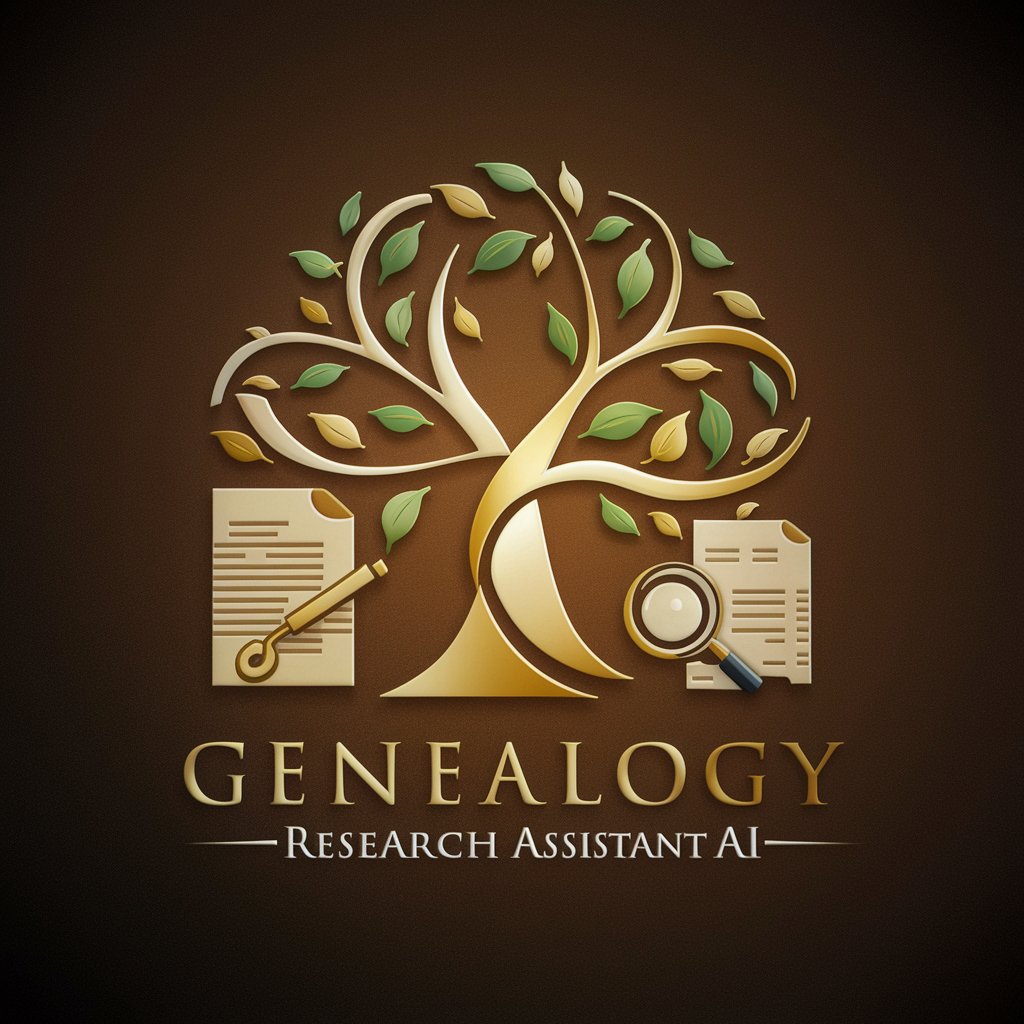
Genealogy Guide
Uncover Your Roots with AI

GenealoGPT
Mapping Your Roots with AI
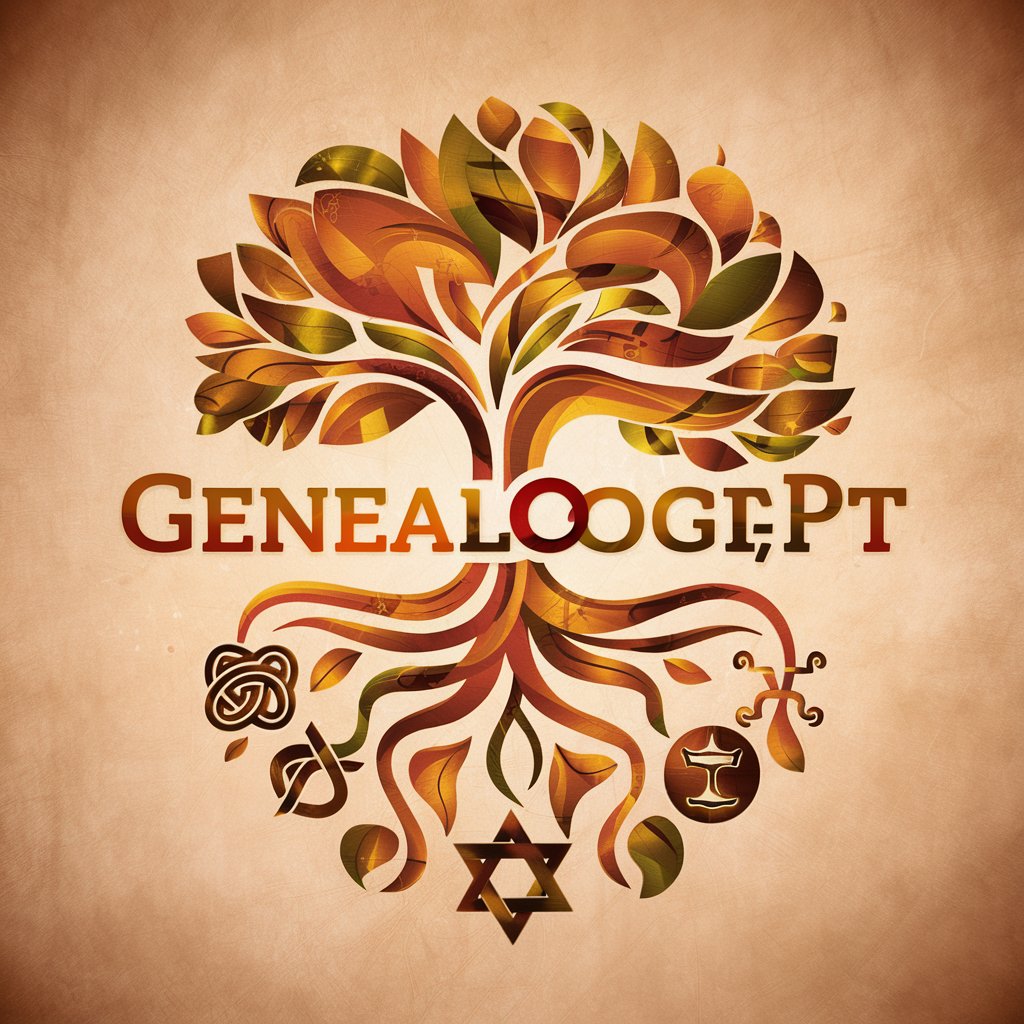
Chameleon
Revolutionize Your Style with AI
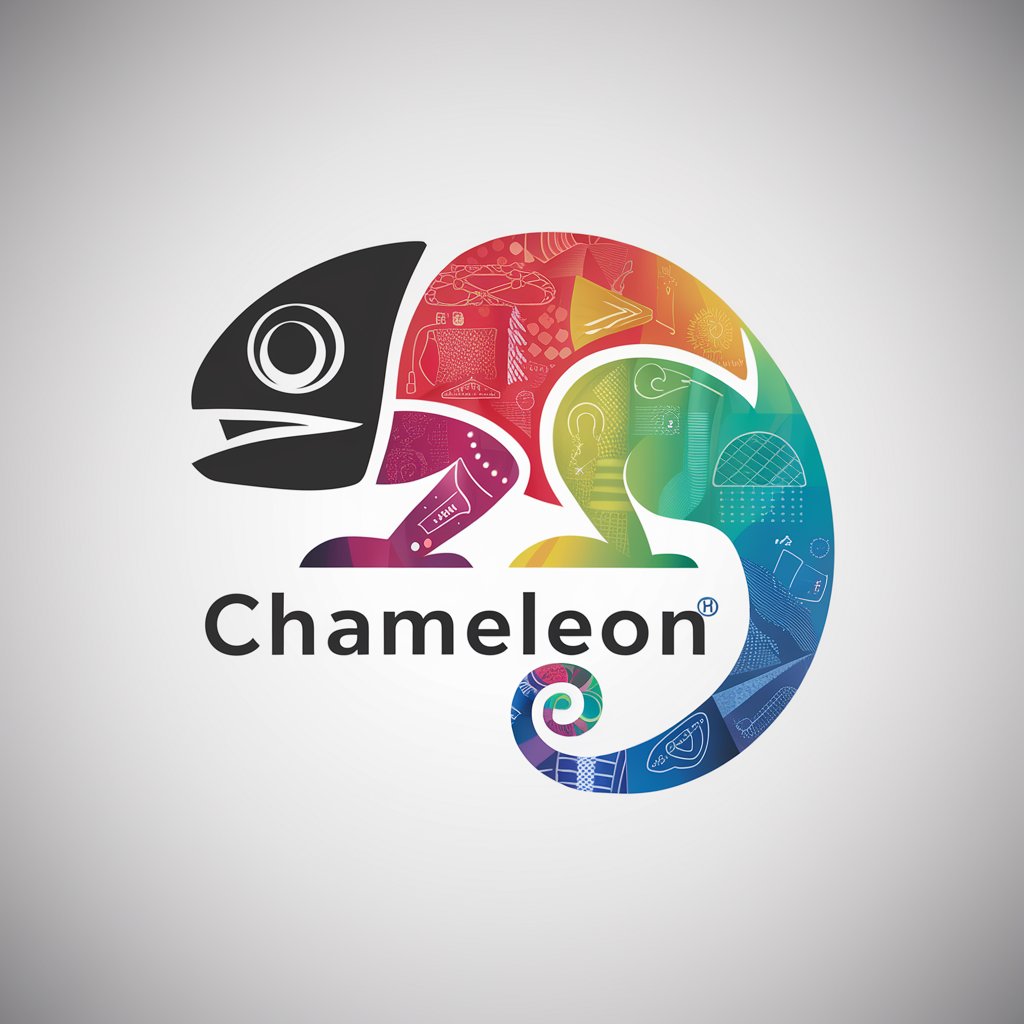
Kanji Challenger
Master Kanji with AI-powered guidance

Why Am I Here, What Should I do: Self-Guided Guru
Discover Yourself with AI

AI and Genealogy Research GPT
Discover your ancestry with AI-driven research

Marketing Ebook Writer
Empowering Marketing with AI

WillAIm Shakespeare
Reviving Shakespeare with AI

Ye Olde Fantasy Scribe
Craft Thy Character, Begin Thy Quest
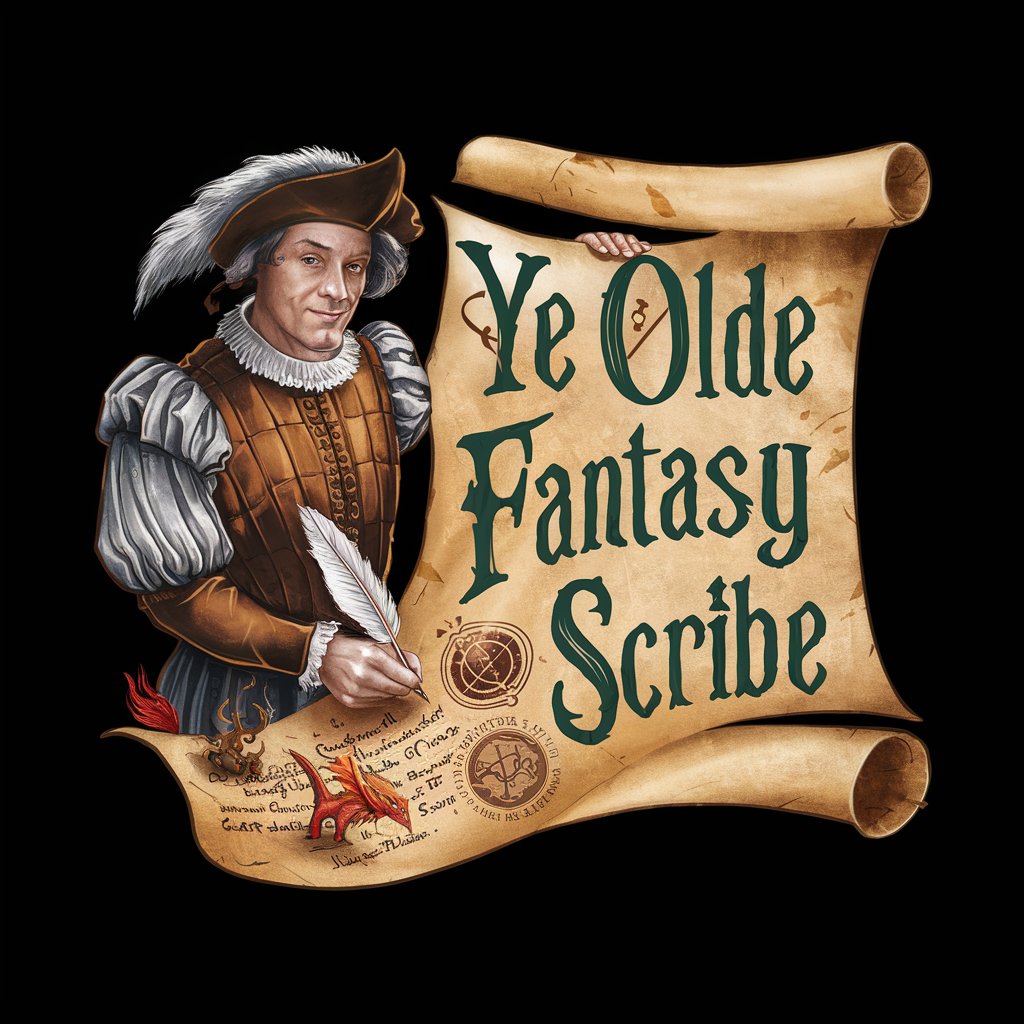
🕵️♀️ Agent Thee GPT 🕵️♀️
Empower Your Voice with AI
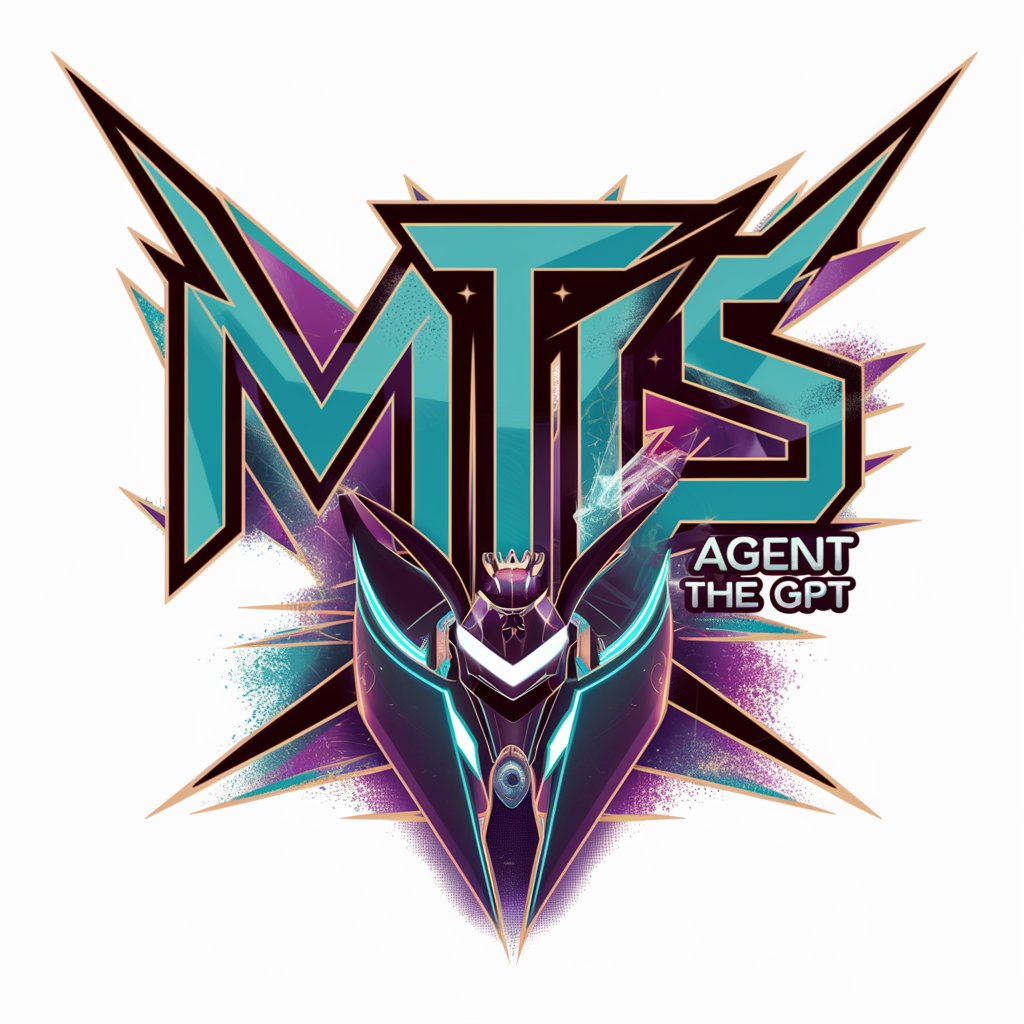
Asistente Apartamentos Amoblados MI FAMILIA
Book smarter with AI-driven guidance.

Detailed Q&A on Newfoundland Genealogy
How can I find information about my ancestors from Newfoundland who lived in the 19th century?
To locate 19th-century ancestors, utilize the search features in the MUN's Digital Archive Initiative and other databases by entering their names, approximate dates of birth, or places of residence. Cross-reference different documents like church records, censuses, and land records for comprehensive data.
Can Newfoundland Genealogy help me understand old Newfoundland dialects in historical documents?
Yes, this tool is equipped to interpret and provide meanings for Newfoundland dialects found in historical texts, helping you understand old documents more clearly.
What should I do if I can't find any records of a place mentioned by my ancestors?
If a place name has changed or no longer exists, Newfoundland Genealogy can search for historical name changes and suggest current names or similar locations based on historical data.
How can I use this tool to prepare a family history book?
Gather data using the archival search, organize the information in genealogical charts, and use the provided templates to format and compile a family history book.
Does this tool offer any collaboration features for family history research?
While primarily designed for individual use, you can manually share your genealogical charts and research findings with others for collaborative purposes.
